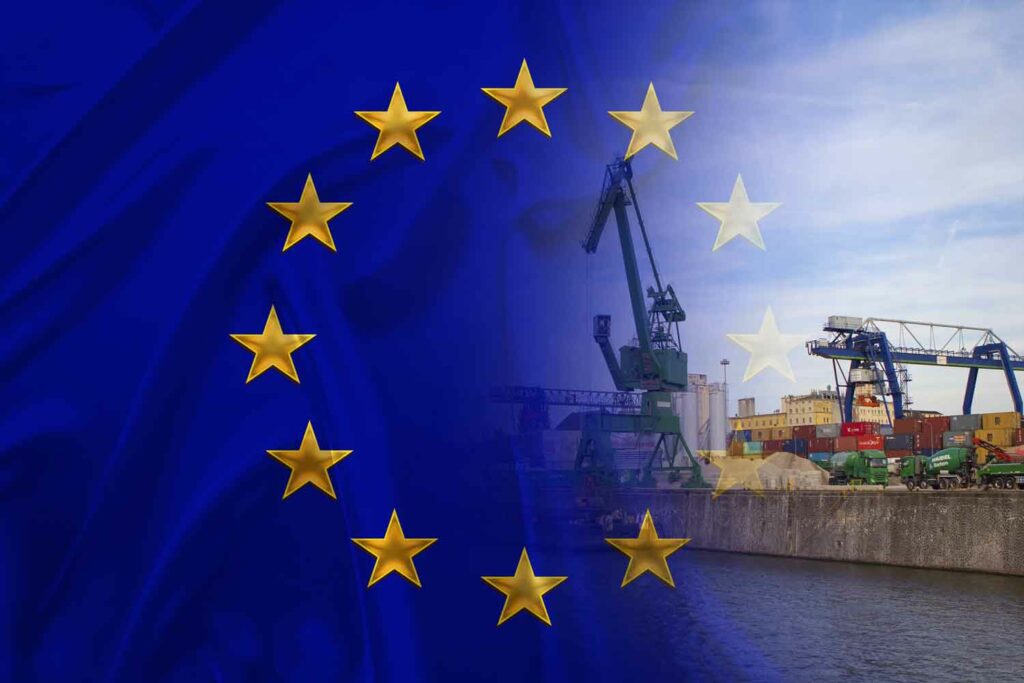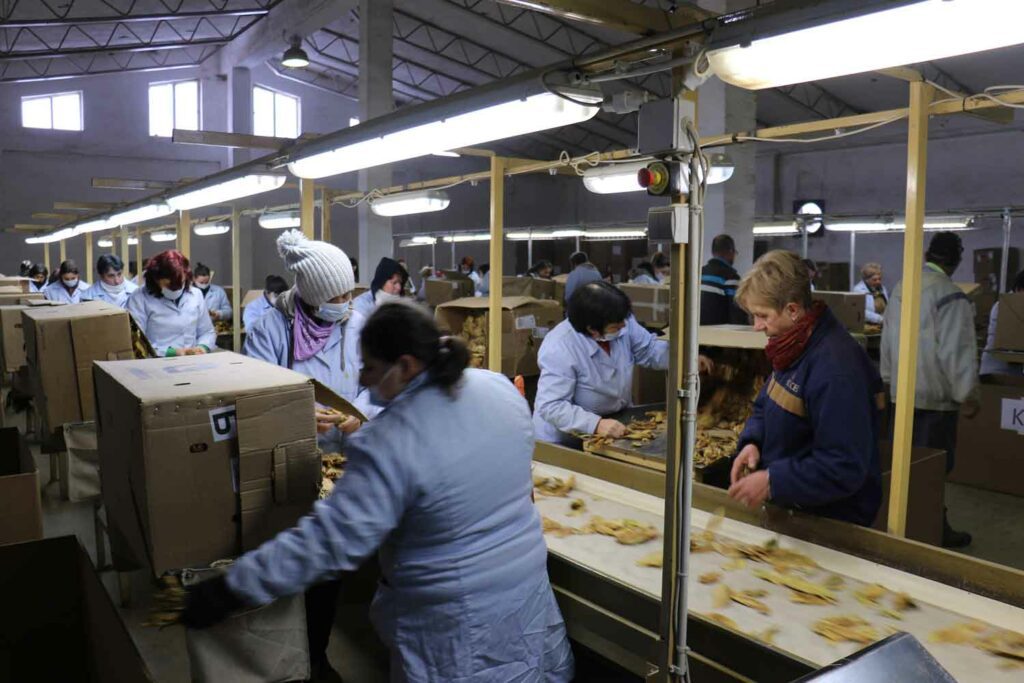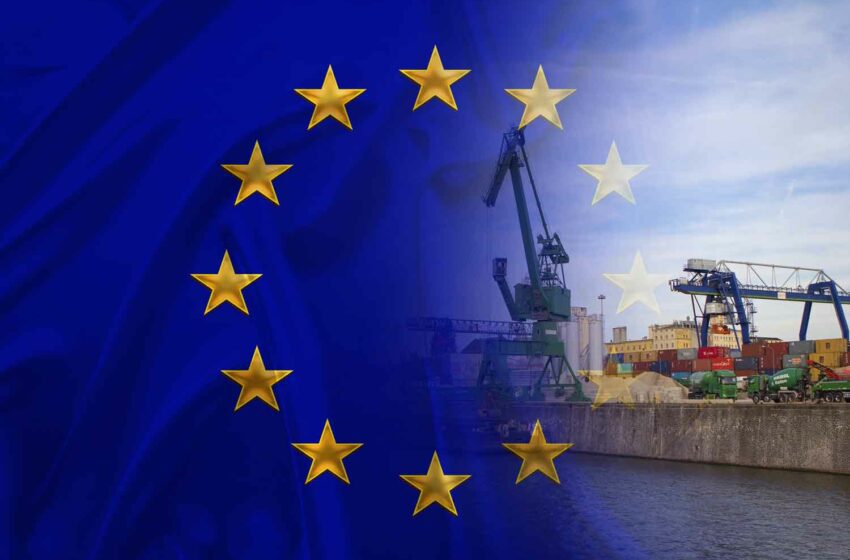
Even in its watered-down version, the recently approved EU supply chain law will impact tobacco companies.
By Stefanie Rossel
Good things come to those who wait, but sometimes they come only as a compromise. On March 15, the European Council finally approved the EU Corporate Sustainability Due Diligence Directive (CSDDD), which was scheduled to be adopted by the European Parliament on April 24, thereby passing it into EU law.
Commonly referred to as the EU Supply Chain Law, this directive, which was first proposed in February 2022, is meant to establish a common baseline across the trade bloc’s member states. As binding EU law, it requires companies to identify, prevent and mitigate adverse impacts on human rights and the environment throughout their supply chains. If implemented as anticipated, the CSDDD would impose substantial responsibilities on companies, including those operating in the tobacco business.
The version the European Council agreed upon this March, though, is a significantly watered-down version of the original draft, reducing the number of affected companies in Europe by 70 percent and allowing for several exceptions. The amendments include:
- Reduced scope of application: Instead of companies with 500 employees and a turnover of €150 million ($162 million) as initially envisaged, the directive in its current form would be applicable to enterprises with 1,000 employees and a turnover of at least €450 million.
- Deletion of the high-risk approach: The plan to gradually integrate companies that don’t meet the criteria of the scope of application but operate in a high-risk sector has been eliminated from the draft law.
- Introduction of a staggered implementation of the directive: Depending on their size and turnover, companies now have between three years and five years to make their firms compliant with the CSDDD.
- Civil liability: The liability clause included in the CSDDD will be marginally adjusted to allow member states more flexibility in transposing the directive into national law. Generally speaking, however, the CSDDD will still enable injured parties to sue European companies for breaches alleged to have occurred across their supply chains.
“The overall EU objectives of addressing global human rights issues, environmental concerns and, more recently, climate change can certainly not be criticized,” says Abrie du Plessis, an associate at the South African Trade Law Center in Cape Town and a close observer of EU regulation who during previous work in the tobacco industry followed the development of the World Health Organization Framework Convention on Tobacco Control (FCTC) and the development of the 2014 EU Tobacco Products Directive.
“As always, however, real challenges and obstacles can emerge from the details, and it seems fair to say that major companies operating in the EU already face what may be described as a flood of legislative initiatives on the issues now also covered by the CSDDD,” says du Plessis. “The task which lies ahead, which is to comply with a range of general, specific and sometimes overlapping legislative initiatives, is formidable.”
Building on Other Laws
Even in its weakened form, the CSDDD will likely affect all the major tobacco manufacturers operating in the EU in some way due to their turnover and number of employees. Du Plessis thinks that they are well placed even though, as always, the specifics of the tobacco industry must be considered.
The CSDDD comes on the heels of the EU Corporate Sustainability Reporting Directive (CSRD), which was adopted in December 2022 and entered into force on Jan. 5, 2023. This directive requires all large companies and all listed companies, except listed micro-enterprises, to disclose information on what they see as the risks and opportunities arising from social and environmental issues and on the impact of their activities on people and the environment. This is supposed to help investors, civil society organizations, consumers and other stakeholders to evaluate the sustainability performance of companies, as part of the European Green Deal, which is intended to transform the EU into a climate-neutral regional integration organization by 2050.
“These two directives are closely related, and some of the steps already being taken by companies to ensure CSRD compliance are also required by the CSDDD,” says du Plessis. “Some progress toward CSDDD compliance is therefore already being made.”
In some instances, he adds, there are also other EU laws that already address—or will in due course address—specific environmental issues. “Relevant examples are those on the sustainable use of plant protection agents, on single-use plastics and on deforestation,” says du Plessis. “Such EU legislation can either be directly applicable to tobacco products or can provide useful guidance even if it is not directly applicable. Already complying with measures clearly prescribed in other EU legislation may reduce the CSDDD compliance burden.”

News Tasks
Nevertheless, the upcoming directive will bring about a range of challenges for tobacco companies. Among other things, manufacturers may be held liable for circumstances that are out of their immediate control and which, experts argue, are probably better handled by policymakers in the respective countries covered by the supply chain in question.
“The CSDDD requires companies to identify potential and real adverse environmental and human rights impacts arising from their own operations, subsidiaries and business relationships,” says du Plessis. “They must take measures to prevent or mitigate any potential impacts they identify as well as end or minimize any real impacts. Failure to comply and resultant may lead to liability and financial penalties.
“An example could be the issue of child labor, and it has become an established view that the purchasers of commodities do in fact have some ability to influence the behavior of their suppliers. The tobacco industry has certainly done a lot of work in this area, but the question going forward will of course be whether this meets expectations or will need to be revisited. It is quite correct to observe that national policymakers also have a key role to play in this debate.”
According to du Plessis, the expectation that manufacturers assume responsibility for the behavior of their suppliers has become a fact of life. “The basis for this approach is the real or perceived control which manufacturers exercise over players in their supply chains,” he says. “There are of course debates to be had as to what is in fact possible and workable, and the issues will hopefully be addressed through having constructive debates about CSDDD during its transposition and implementation phases.”

“Some corporate social responsibility activities for which tobacco companies were often criticized in the past are now actually required by law.”
Abrie du Plessis, associate, South African Trade Law Center
Isn’t It Ironic?
The CSDDD will also require companies to adopt a transition plan. Under the new law, companies will be required to adopt transition plans for climate change mitigation and ensure that their business model and strategy are compatible with the transition to a sustainable economy. These transition plans should be reviewed every 12 months and describe in detail the progress the company has made toward achieving its targets.
For the tobacco industry, this represents a complicated part of the curing and deforestation debate, according to du Plessis. “The interesting angle here is that burning of wood biomass is generally regarded as carbon neutral and in many instances as sustainable.”
Du Plessis says there are more bits of irony in the EU laws prioritizing sustainability. “The first is that some corporate social responsibility activities for which tobacco companies were often criticized in the past are now actually required by law,” he points out. “The second is the false narrative that Article 5.3 of the FCTC should apply to regulatory processes such as these. Neither the text of the FCTC nor that of its nonbinding guidelines support this view, and both the CSRD and the CSDDD make interaction with the industry involved a necessity rather than an option.”
“Leading cigarette companies have a long history of proactively addressing many of the issues potentially covered by the CSDDD on a voluntary basis,” says du Plessis. “Participating in both the CSRD and the CSDDD processes will certainly put what they have achieved so far to the test. If done properly, CSRD and CSDDD can certainly contribute to progress in the areas identified, but given significant legal uncertainties, the preferred point of departure should be constructive dialogue rather than penalties and sanctions.”


